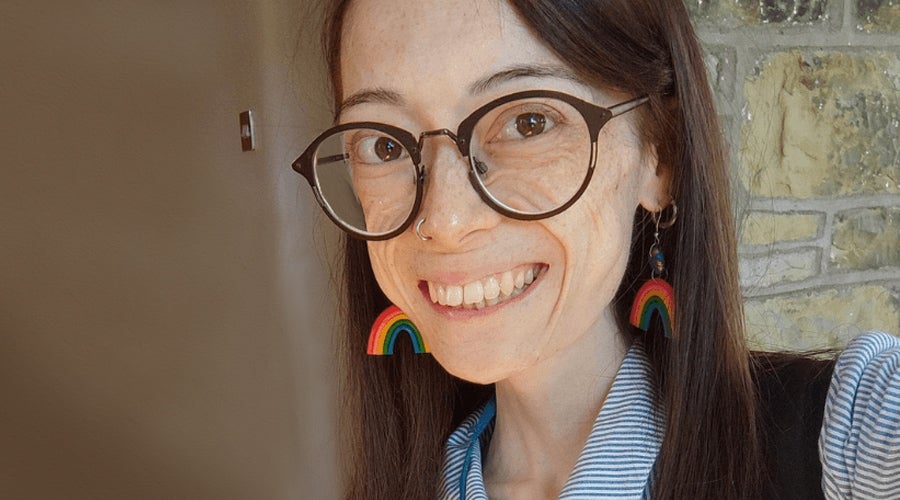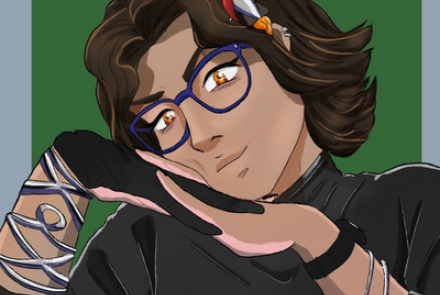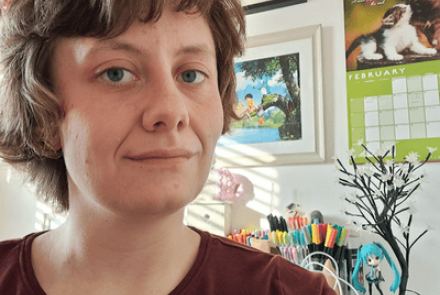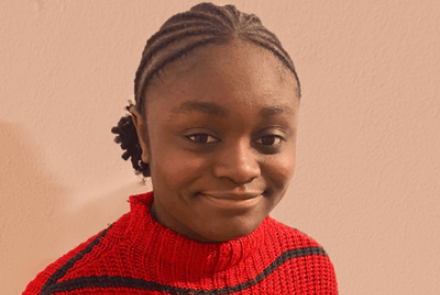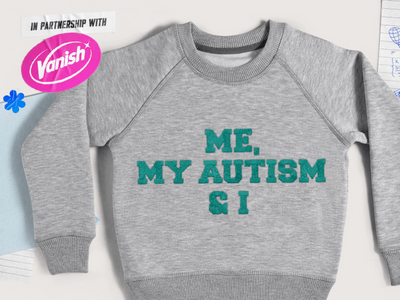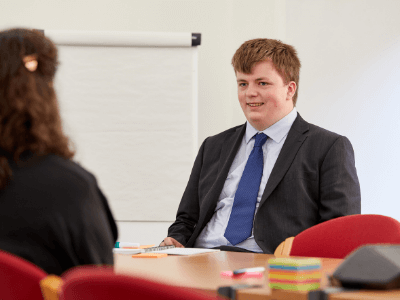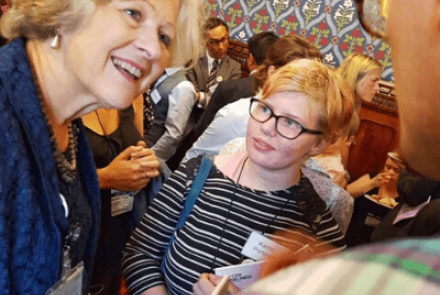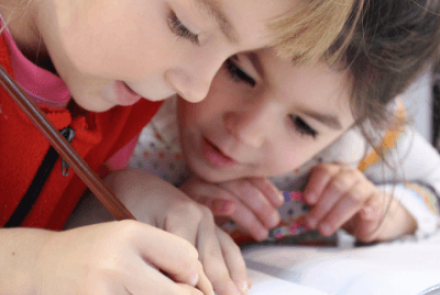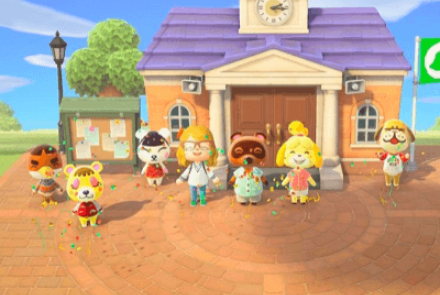Exploring my sexuality as an autistic young person
I've always felt very confused by my sexuality, and it's taken me a long time to come to terms with the fact that I don't fit into any neat 'tickbox'. The closest description I can find for my sexuality would be graysexual but biromantic, and this specificity led to me feeling like an outcast growing up, even in the LGBTQ+ communities I encountered. Graysexual means you lie somewhere between experiencing sexual attraction, and not (asexuality), and being biromantic means you still experience romantic attraction, and for me this is to any gender.
Understanding my identity
Because I went to an all-girls school in a fairly privileged area and wasn't the type of person to go to big house parties, I didn't meet many people who identified as LGBTQ+. At school anything other than being heterosexual was the subject of gossip, unless you had the right 'look' (i.e. you fitted the stereotype image of identifying as, for example, lesbian). This was very difficult for me in particular, because a big part of my autism has been learning what my identity is and developing a sense of self. I was confused about who I was, but it seemed to me that it was okay to not solely be attracted to the opposite gender if I wore certain clothes and acted in a certain way. I didn't know whether to be myself, or act as this stereotype in order to feel comfortable.
Equally challenging was addressing clothing. Part of 'being a stereotype' meant wearing certain clothes, which, as someone who struggles to deal with sensory issues around fabric, made me feel more ashamed. I would force myself to dress in things that made me feel terrible. This all had a big impact on my mental health, and eventually led me to look for friendship and an identity through negative behaviours. I became very ill with a long-term eating disorder, OCD, and depression, and between 14 and 19 was mainly in psychiatric hospitals, not attending school at all for the last two years.
Fortunately, I managed to work hard enough to gain a place at university, but despite attending a university that was much more diverse, I found the LGBTQ+ society to be very much focused on people who described themselves as lesbian or gay. I also found them to be less accepting of people who felt 'confused', and due to my mental health and struggles with understanding myself, I, at this point, was still quite confused about my sexuality. Even in this community, I didn't feel very accepted.
Finding an autistic community
However, upon starting my second year of university, I joined Ambitious about Autism’s youth network. I had been diagnosed as autistic when I was 13, but there was very little in the media about autistic girls, and my health team ignored the diagnosis. They didn't try to support me, for example through wellbeing check-ins or help developing strategies to manage the challenges of life. It was actually only at the age of 20, through Ambitious about Autism, that I met other autistic young people and began to understand how it applied to me. I embraced my differences, felt more confident about my strengths, and through the community explored my sexuality. Through hearing others experiences and connecting, I finally grasped a bit of understanding of who I am, and, most importantly, felt okay with that.
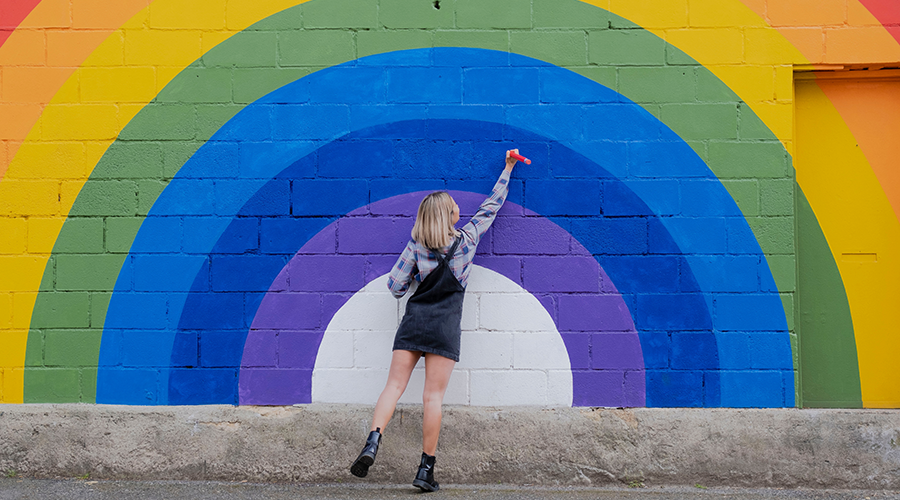
I think we need more autism-specific LGBTQ+ groups, and more diversity within LGBTQ+ groups. I think this would give more people confidence to be open about their sexuality and to feel proud of who they are. As someone who identifies as demi or graysexual, I felt underrepresented both in the media and in LGBTQ+ communities, yet between 1% and 4% of the population is said to identify this way. Additionally, autistic individuals are four times as likely as neurotypicals, to identify this way.
If I had one piece of advice for other people feeling like me, I would say seek out autistic communities, and LGBTQ+ groups whenever you want to and feel able to - because you could be the person to make it more diverse, if it isn't already. Don't wait, and don't let yourself grow up feeling alone. No matter how you identify, there is no right, or wrong, or weird, and there will be people who understand you.
About the author
Saffron is 24. They love art, researching anything from science to history, to food, and are passionate about advocating for autistic individuals and improving awareness and support of mental health difficulties. Their favourite food is cereal, and they love a library or museum as well as going to a gig!
Vanish are donating 25p from every pack of Vanish Gold Range sold in UK Asda stores between 29th March and 18th April to Ambitious about Autism, to help create a world where autistic girls and young people are heard, included and supported.
Vanish have provided neurodiversity training to their employees and talent and acquisition teams to establish more inclusive hiring policies. Alongside the creation of an internal neurodiversity handbook. They will also offer employee volunteer days with Ambitious about Autism to continue to build an ongoing relationship, having committed to 3 years of activity for World Autism Acceptance Week.
Vanish is committed to helping clothes live longer and believe that every garment you own should bring you comfort again and again. Find out more about our #Rewear fight here.

